19 products
- White Wine
- Chardonnay
- Sustainable, Vegan-Friendly
- Dry
- Medium Bodied
- 750ml
- 12.5% alc./vol
About the Winery
Domaine de Mauperthuis

A family estate created by Marie-Noëlle & Laurent Ternynck, Domaine de Mauperthuis is located in Prehy, near the town of Chablis. Their wines express the terroir of this amazing region and the vineyards are currently undergoing the transition to organic. Domaine de Mauperthuis covers around twenty hectares of vineyards around Chablis. The estate, in the Burgundy appellation, is planted in Chardonnay, Pinot Noir, Sauvignon and César, on land facing south, benefiting from exceptional sunshine.
Press Reviews
Wine Align
91 points (2020) - David Lawrason
This is a quite rich, slightly oxidative style of unoaked chardonnay with pale golden colour and a ripe nose of baked apple. Peach pie, toasty lees and vague nuttiness. It is medium weight, smooth and almost creamy with fine acidity and mineral underpinning. The length is excellent. Tasted June 2022
- Red Wine
- Cinsault, Grenache, Syrah
- Organic, Vegan-Friendly
- Dry
- Full Bodied
- 750ml
- 14.5% alc./vol
About the Winery
Château de Montfaucon

Just across the Rhone river from the beautiful vineyards of Chateauneuf-du-Pape, the Lirac appellation extends itself on the low hills alongside the river. The history of Château de Montfaucon dates back to the 11th century when the castle's first tower was built. The castle's role in history was strategic; the Rhône River was the border between the French Kingdom and the Holy Roman German Empire. Montfaucon was one of many castles and fortresses along the Rhône River constructed to guard the border.
Rodolphe de Pins took over the family estate of Montfaucon in 1995 and subsequently rebuilt the winery and began practicing sustainable agriculture. He honed his winemaking skills in Barossa at Henschke and Vieux Telegraphe in Châteauneuf du Pape before returning to Lirac, so needless to say, his familiarity with the local varieties is well established.
- White Wine
- Pinot Grigio
- Organic, Vegan-Friendly
- Dry
- Light Bodied
- 750ml
- 12.5% alc./vol
About the Winery
Zuani

Zuani winery is located in the heart of Collio, Friuli, a hidden appellation between the Adriatic Sea and the Alps. Coming from a long tradition of winemakers in Croatia that goes back to the 19th century, Patrizia Felluga saw her dream come true when she acquired the estate and the vineyards in 2001. Today, her son and daughter have taken over the winery; producing exclusively white wines. Everything hinges on one exceptionally well exposed “cru”, or vineyard, on a gentle hillside where about eleven acres of vines and gardens surround the Zuani cellar.
The varietals planted are Tocai Friulano, Chardonnay, Pinot Grigio and Sauvignon, a carefully chosen range that produced the first vintage of Zuani Collio Bianco. The Zuani winery embodies the Felluga family winemaking heritage and expresses the fundamental unity of the traditional aspects of Friulian varieties with their more modern side.
Press Reviews
Robert Parker
90 points
Bright and simple, this wine delivers the goods. The Zuani 2023 Friuli Pinot Grigio Sodevo is made in stainless steel only with expressive fruit from marl and sandstone soils. Floral notes peel off first with orange blossom and yellow rose. There is a hint of sweetness to close, but the wine ends on a rather snappy, dry note. Production is 30,000 bottles.
Zuani, based in San Floriano del Collio, is run by Patrizia Felluga and her children, Antonio and Caterina. The winery is surrounded by soft hills, and the vineyard sites enjoy the best exposures. Typical Ponca soils with marl and sandstone give the wines freshness and sharp contours. This family-run estate was founded in 2001.
August 29th, 2024
WineAlign
92 points (2024) - David Lawrason
This is a classic, very tidy, firm and expressive pinot grigio with a fairly generous nose of ripe pear, linden blossom and wet stone - more complex than most grigios. It is light to medium bodied with firm almost crisp acidity, stony minerality and a lingering lemon-pear finish. Almost into riesling territory in the best way. The length is excellent. So much more here than than in the basic Italian pinot grigios. Tasted November 2025
90 points (2024) - John Szabo, MS
"Sodevo" is Friulan for "satisfied", a reference to wine's ability to satisfy thirst. And Zuani's 2024 pinot grigio completes the mission with a broad, ripe and fleshy but balanced, nicely concentrated example with plenty of ripe yellow orchard fruit flavours and creamy acids. Density and intensity are above the mean, and the finish lingers impressively. Enjoy over the next 2-4 years - this warm vintage does not require extended cellaring. Tasted November 2025.
- País
- Sustainable
- Dry
- Medium Bodied
- 750ml
- 13% alc./vol
About the Winery
Garage Wine Co.

Garage Wine was literally started in a garage in 2001, by Etobicoke expat Derek Mossman and his wife Pilar Miranda. Since then, the dynamic duo handcraft wines from a series of individual vineyards located in the Maule and Itata Valleys, in the south of Santiago, Chile.
Garage Wine Co makes wines from a series of individual parcels, small lots / bottlings of 8-22 barrels that include a series of dry-farmed field-blends of Carignan, Garnacha, Monastrell, País, Cinsault and Cab Franc grown on pre-phylloxera rootstock with small farmers in the Maule and Itata. Each wine is from a 1-2 hectare parcel in a different place.
Over the years working in the community they have raised a veritable posse of vineyard hands whose skills are working the vineyards the old way / the traditional way– originario. The vineyards are on the old coastal range of mountains closer to the Pacific and have granitic soils with cracks for roots to get deep down into.
When GWCo. speaks of the provenance of these wines they mean more than just the geological terroir. Derek and Pilar think the farming practices that have evolved over generations have as much to do with the wines’ personalities as the soils. All the wines are made by hand with native yeasts in small tanks, punched down manually and pressed out in a small basket press. GWCo is still very much a DIY operation and we still tow much of the crop back to the winery in trailers behind trusty pickup trucks 2,000 kilos at a time.
Press Reviews
WineAlign
91 points (2021) - Michael Godel
The 2018 país was, and I quote Garage Wine Company founder (and Oakvillean) Derek Mossman Knapp ”A wine that rose from the 2017 bush fires, quickly having ascended out of the ashes as something resurrected and reinvented.” The method is pressing whole clusters with stems and a co-fermented (2018) collection of país, stacked with carinena, one on top of the other. Now in 2021 it’s all about the mission grape, survivor and revivalist, the stacks of fruit like lyrics, on repeat. If you say the mantra often enough it becomes bible and this grape made in this way is the lifeblood and soul of Chile’s Secano Interior Cauquenes. A very instrumental red wine, comfortable, of relaxed warmth and lack of pressure that you would only expect at home, with people you love. “People can you feel it? Love is everywhere.” Drink 2023-2026. Tasted February 2023.
90 points (2021) - Megha Jandhyala
Born during the pandemic, the Garage Wine Company’s old-vine project is devoted to reviving previously-neglected old vines and supporting local farming communities. Founded by Mossman Knapp and Pilar Miranda, it is based in Maule, home to many dry-farmed, family-owned, old vineyards. Only about 5000 bottles of this old-vine país were made using traditional methods, including traditional dry-farming and hand-harvesting in the vineyards, and manual punchdowns and native yeast in the winery. It is a fresh, light, cheerfully fruity, wine, clean and uncluttered, with a down-to-earth, guileless charm. Red berries and herbs are joined by notes of pepper and wildflowers. The palate is medium-bodied and soft, with fine tannins, tart acids, and very good length.
- Red Wine
- Gamay
- Organic
- Dry
- Light Bodied
- 750ml
- 13% alc./vol
About the Winery
Domaine du Château de La Chaize
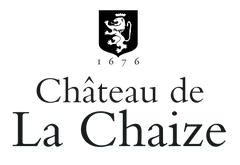
Château de La Chaize is among the oldest, most historic estates in Burgundy’s Beaujolais region. Cared for by the same family for nearly three and a half centuries, the estate has been passed on to new owners, the Gruy family, who are equally committed to managing the estate with the utmost care, while implementing an ambitious environmental plan. Among the many initiatives is the conversion of all vineyards to organic farming, the adoption of precision viticulture, reducing carbon their carbon footprint, and recycling every by-product from viti- and vinicultural activity, to achieve zero waste.
Founded in 1670 by the seneschal of Lyon François de la Chaize d’Aix, the main Château de la Chaize building and gardens were completed by Jules-Hardouin Mansart and André le Nôtre, respectively architect and gardener of the Château de Versailles. Château de la Chaize is among the oldest, most historic estates in Burgundy’s Beaujolais region. Boasting over 250 acres of vineyards, it is also one of the largest. It is today considered one of the most innovative estates in Burgundy. Among its forward- thinking practices is the adoption of eco-friendly farming techniques, commonly referred to as Agriculture Raisonnée. Chemical treatments have been reduced to a strict minimum, for example, and the growing of grass between rows has been re-introduced to enrich the soil and reduce erosion.
Press Reviews
Wine Align
91 points (2021) - Michael Godel
This Brouilly’s got punch...like wasabi! Rare spicy gamay here and perhaps simply a combination of cooler slash wetter vintage and some age got behind the wine. In any case the punchiness and grip are a good combo for something to have fun pairing with interesting cuisines. Go crazy with ’21 De La Chaize. Drink 2025-2027. Tasted November 2025.
- White Wine
- Pinot Bianco
- Sustainable
- Dry
- Light Bodied
- 750ml
- 13% alc./vol
About the Winery
Kellerei Bozen - Cantina Bolzano
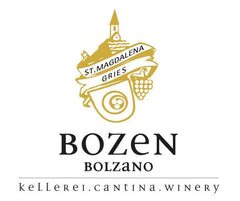
Nature’s gifts must be employed with respect and understanding.
The Cantina Bolzano winegrowers have a strong focus on near-natural methods and sustainably managed vineyards. They are committed to treating the soils and vines with the greatest care. In a slow process of maturation the best results are achieved with expert helping hands: daily inspection of the vines, thoughtful pruning, careful thinning – all the little jobs that lay the foundation for a top-quality harvest. For a unique quality wine, time is all important. During months of passionate dedication on the part of our winegrowers, top quality grapes ripen in the generous sun of Alto Adige. After the harvest in autumn, the grapes are brought in and sensitive vinification begins under the watchful eye of our winemaker Stephan Filippi and his team.
With long years of experience in winemaking and a passion for the product, he creates unique and distinctive quality wines. Subtle wines that are full of character and very much in keeping with the spirit of the times.
The many accolades and awards won by the wines of Cantina Bolzano are due in no small part to Stephan Filippi’s intuitive relationship with wine and his commitment to excellence.
Kellerei Bozen - Cantine Bolzano

Cantina Bolzano, based in the town of Bolzano, traces its roots to two of Alto Adige’s most historic cooperatives: Santa Magdalena, est. 1930 and Cantina Gries, est. 1908. After deciding to merge in 2001, Cantina Bolzano was created. Bolzano is located in the middle of a valley basin surrounded by hilly vineyards that grow from 200 meters above sea level up to 1000. North and south meet in this valley, and the sun warms the stony soils with its pronounced diurnal temperatures, protecting the vines from the cold.
The average growers’ plots in Sudtirol averages only approx. 1 hectare, and the area, with its famed reputation and steep slopes, is an expensive area to farm. The member of Bolzano (approx. 300 in all) own many of the best vineyards throughout the region, including the Valle Isarco, and pool their resources to create top quality wines. And while no grower is certified organic, many practice organic viticulture and all of them adhere to natural practices in their vineyards. Most growers have lived on their farms with their families for generations. They protect their land and cultivate their vineyards as they have done for generations with total respect of the environment where they live.
Press Reviews
Wine Align
91 points - Michael Godel
Yet another stellar pinot bianco from the collective Bozen collection to present one of the better global white wine alternatives. Not for Alto Adige mind you, but there is a world out there that knows so little about the grape and here would be the place to begin a new and exciting varietal journey. Tart and at its high moments also bracing, lime spritzing here and there, fruit pungency and intensity running amok and frankly everywhere. Pulse, energy and vitality, almost as if you can here the crackling, like ice on the coldest of days. Cool climate pinot bianco rocks. Drink 2024-2026. Tasted August 2024.
90 points - Megha Jandhyala
This is a delightfully engaging pinot bianco, with clear, bright notes of golden currants, peaches, apricots, and jasmine blossoms. The palate too is bright, with appealing layers of fresh fruit. It feels pleasantly textured and fleshy, supported by uplifting acidity, while the finish is appealingly drawn out and flavourful. Tasted August 2024.
90 points - Sara d'Amato
A tart and dry style of pinot bianco, finely crafted with more intrigue than the norm. Features delicate notes of bergamot, white pepper, and the faintest touch of lees autolysis, along with citrus blossom that lingers on the finish of very good length. Offers impressive concentration and complexity that matches the premium price. Tasted August 2024.
89 points - John Szabo, MS
The reliable coop of Bolzano delivers a ripe and perfumed, gently candied citrus version of pinot blanc in the hot 2023 vintage, certainly on the softer side, carressed by creamy acids. It moves languidly across the palate, comfortably and predictably, yet lacking the mineral twang and incisive cut of the top vintages from the region, if wholly drinkable over the near term. Tasted August 2024.
- Red Wine
- Corvina, Rondinella
- Sustainable, Vegan-Friendly
- Dry
- Full Bodied
- 750ml
- 15.5% alc./vol
About the Winery
Ca' del Monte

Ca del Monte is situated on the hillsides overlooking the village of Negrar, in the heart of Valpolicella. It has belonged to the same family for generations, and is now run by brothers Umberto and Giuseppe Zaconte. There’s nothing fancy about this place. The house and winery are modest - and are attached to a 17th century monastery.
The estate is approximately 50 acres, and its 15-65 year old vines lie on gentle slopes at 800-900 meters. They grow on four soils including clay, limestone, red volcanic soil with red stones, and “Toar,” a green volcanic soil. The vineyards of Ca Del Monte are planted with 20-40 year old vines of Corvina, Rodinella and Molinara grapes that are planted in poor soils that stress the vines and nurture the fruit. All of the farming is done traditionally and non-certified organic.
- Orange Wine
- Ribolla Gialla
- Biodynamic, Natural, Organic, Vegan-Friendly
- Dry
- Medium Bodied
- 750ml
- 12% alc./vol
About the Winery
Štekar
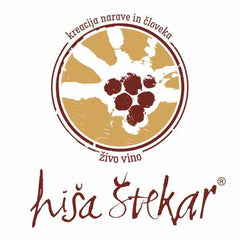
The Štekar family has been growing grapes in Goriska Brda since 1985. With 6 acres of vines planted in the stunning hills of western Slovenia, along with cherry orchards, Jure Štekar has committed to make wine the way his grandfather Emil taught his father: respecting tradition and avoiding invasive technologies.
Certified organic since 2006, Jure likes to play with long macerations, spontaneous fermentations and tiny SO2 amounts. His goal is to produce genuine wines that tell the story of his land and family.
Press Reviews
Jancis Robinson
17.5
Deep gold, pungent, punchy. A fickle nose that catches a flicker of Roman drains one moment and then floods the two feet above the glass with orange blossom and quince. So salty your mouth will pucker and then you get the sweetness and citrus oils and herbal bite. It's twists and twists of clementine peel and tangerine and sweet lime. It's oregano and kumquat, pink salt and sour cream. It's punky, silk-and-handcuffs, addictive. Jure Štekar's wines get more and more beautiful every year.
- Red Wine
- Malbec
- Sustainable, Vegan-Friendly
- Dry
- Full Bodied
- 750ml
- 13% alc./vol
About the Winery
Château Lamartine
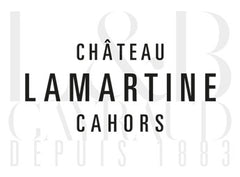 The Château Lamartine stands at the extremely west side of the Cahors Appellation, on the oldest of Lot Valley’s terraces. The terroir of the 37 hectares faces South on clay and limestone soils which guarantees a perfect maturity to the Malbec.
The Château Lamartine stands at the extremely west side of the Cahors Appellation, on the oldest of Lot Valley’s terraces. The terroir of the 37 hectares faces South on clay and limestone soils which guarantees a perfect maturity to the Malbec.For four generations, the Gayraud family has given the greatest care to the vines as well as the wine-making. This is the key to get the purest expression from the terroirs.
Press Reviews
Wine Align
92 points (2018) - Michael Godel
The 2018 “Tradition” bottling represented Cahors with good distinction and from first nose this follow-up ’19 takes that excellence one step further. Not that it gives anything away for free because there is some reserve here but the wine opens with air and agitation to reveal classicism in every respect. The fruit is mature and slow developed, ever so slightly charred and surely on a low trajectory of incrementally developing complexity. Cautious now and yet so close to drinking as well it it’s ever going to be. Drink 2024-2028. Tasted March 2023.
91 points (2018) - John Szabo
Open and fragrant, maturing nicely at this stage, Lamartine's classic Cahors (90% malbec with 10% merlot), is a lovely and succulent wine, well-proportioned and fresh, with lively acids and a real limestone twang. Wood is fully in the background, an accessory to complexity, while tannins are ripe, fine and silky and length is exceptional in the price category. Classy, well made wine, authentic, and surely better than most Bordeaux for the money. Drink or hold another 4-6 years. Tasted March 2023.
- White Wine
- Grechetto
- Organic
- Dry
- 750ml
About the Winery
Cantina Cenci
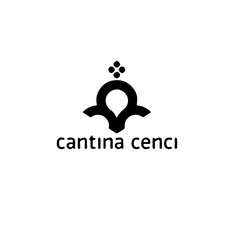
The Cenci Family has been dedicated to viticulture for over four generations, continuing to cultivate the vine with deep respect for the traditions and unique characteristics of the land once owned by the Olivetan monks. In the early 1950s, Mario—an enlightened and forward-thinking agricultural expert, and grandfather of Giovanni—selected clones of Grechetto, Sangiovese, and Malvasia from vines once cultivated by the Olivetan monks and traditionally grown intertwined with mulberry trees. He planted the first vineyards of the estate, and the wines made from those grapes were of such outstanding quality that he secured a long-term contract to supply Grechetto and Sangiovese in traditional flasks to the restaurant of a prestigious hotel in Perugia.
In 2012, following two years of renovation of the farmhouse, the new winery was inaugurated under the guidance of Mario Cenci, architect and brother of Giovanni. Thanks to cutting-edge equipment and winemaking techniques—combined with deep respect for tradition and the passionate leadership of Giovanni Cenci (viticulturist, enologist, food biotechnologist, and sommelier)—Cantina Cenci today produces wines appreciated by a niche audience of expert consumers.
The perfect balance between tradition and innovation has shaped a strong and distinctive brand identity.
- White Wine
- Sylvaner
- Biodynamic, Organic, Vegan-Friendly
- Dry
- Light Bodied
- 750ml
- 12.5% alc./vol
About the Winery
Domaine Muré
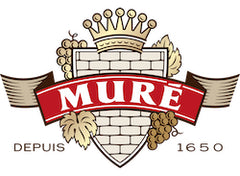
The Muré family has been winegrowers in the region of Rouffach since 1650. In 1935, Alfred Muré, René’s grandfather, bought 32 acres of family-monopole vineyard name Clos St. Landelin, an area that has been described as the best of Alsace Grand Cru since the 7th Century.
Today, René Muré, the 11th generation of the family, along with his children, Véronique and Thomas, are responsible for running their exceptional Grand Cru vineyard and neighbouring terroirs using biodynamic methods. Until this day, they persist in hand-picking every single grape, and focus on crafting wines that preserve the family’s credo. The resulting wines are some of Alsace's finest – powerful, elegant, and age-worthy.




















